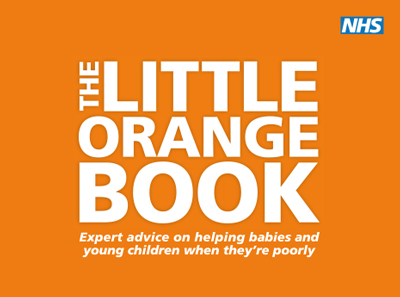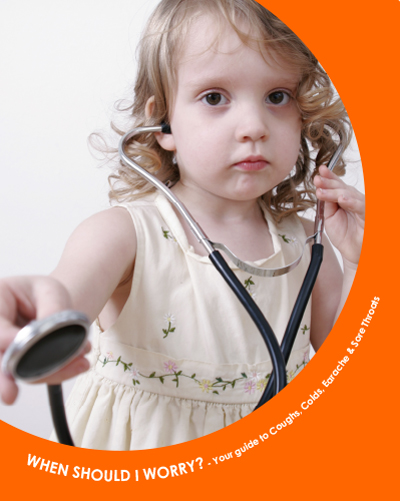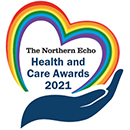Having an ill child can be a very scary experience for parents. If you understand more about the illness it can help you to feel more in control.
Useful downloads/links
The Little Orange Book gives you expert advice and tips on how to manage common illnesses and problems that babies and young children often experience in the first five years.
When should I worry? will help you to deal with common infections in children who are normally healthy.
Child health apps – the NHS website has a guide to some of the child health apps available for download.
HANDi Paediatric app (Android / Apple) – advice for common childhood conditions.The HANDi Paediatric app gives up-to-date advice about common childhood illnesses and how to treat them.
Medicine cabinet
Below is a list of useful medicines and dressings for all the family. They are inexpensive and worth stocking at home.
Remember: Keep all medicines locked-up and out of the reach of children.
- Paracetamol/Ibuprofen – for adults or children over 12. Good for headaches, colds, sore throats and painful bruises.
- Paracetamol mixture/Ibuprofen syrup – for relief of pain or fever in young children.
- Cough linctus (non sedative) – for dry or painful coughs, but not coughs caused by common colds.
- Menthol crystals – add to hot water to make steam inhalations for treating catarrh and dry or painful coughs.
- Vapour rub – again, for steam inhalations. Also useful for children with stuffy noses or dry coughs. Rub on the chest and nose.
- Antihistamine (cetirizine) – for hay fever, allergies etc
- Rehydration powders – to restore fluids and body salts lost during stomach upsets/ diarrhoea
- Antiseptic solution – one teaspoon diluted in warm water for cleaning cuts and grazes.
- Antiseptic cream – for treating septic spots, sores in the nose and grazes.
- Calamine lotion – for dabbing (not rubbing) on insect bites and stings and sunburn.
- Factor 50 sunblock – especially for children.
- Dressing strips – for minor cuts.
- 3″ wide crepe bandage – to keep dressings in place. To support sprained or bruised joints.
- Gauze squares – for cleaning cuts and grazes.
- Thermometer – for fevers.
When to seek professional medical help
For urgent medical help or advice dial NHS 111 and in an emergency dial 999, but remember:
- most common infections do not get better quicker with antibiotics
- most children with a cold, cough, sore throat or earache, who see their GP, will still be ill four days later. This does not mean that they need treatment or need to be seen again
- one third of children who have seen their GP with a cough will still be coughing two weeks later. This does not mean that they need treatment.
Only children with signs of more serious illness generally need to be seen by a doctor or nurse. These signs include:
- excessive drowsiness
- difficulty breathing or rapid breathing
- cold or discoloured hands and/or feet with warm body
- abnormal pains in arms and/or legs
- abnormal colour (pale or blue).





 GP Practice of the Year 2021
GP Practice of the Year 2021